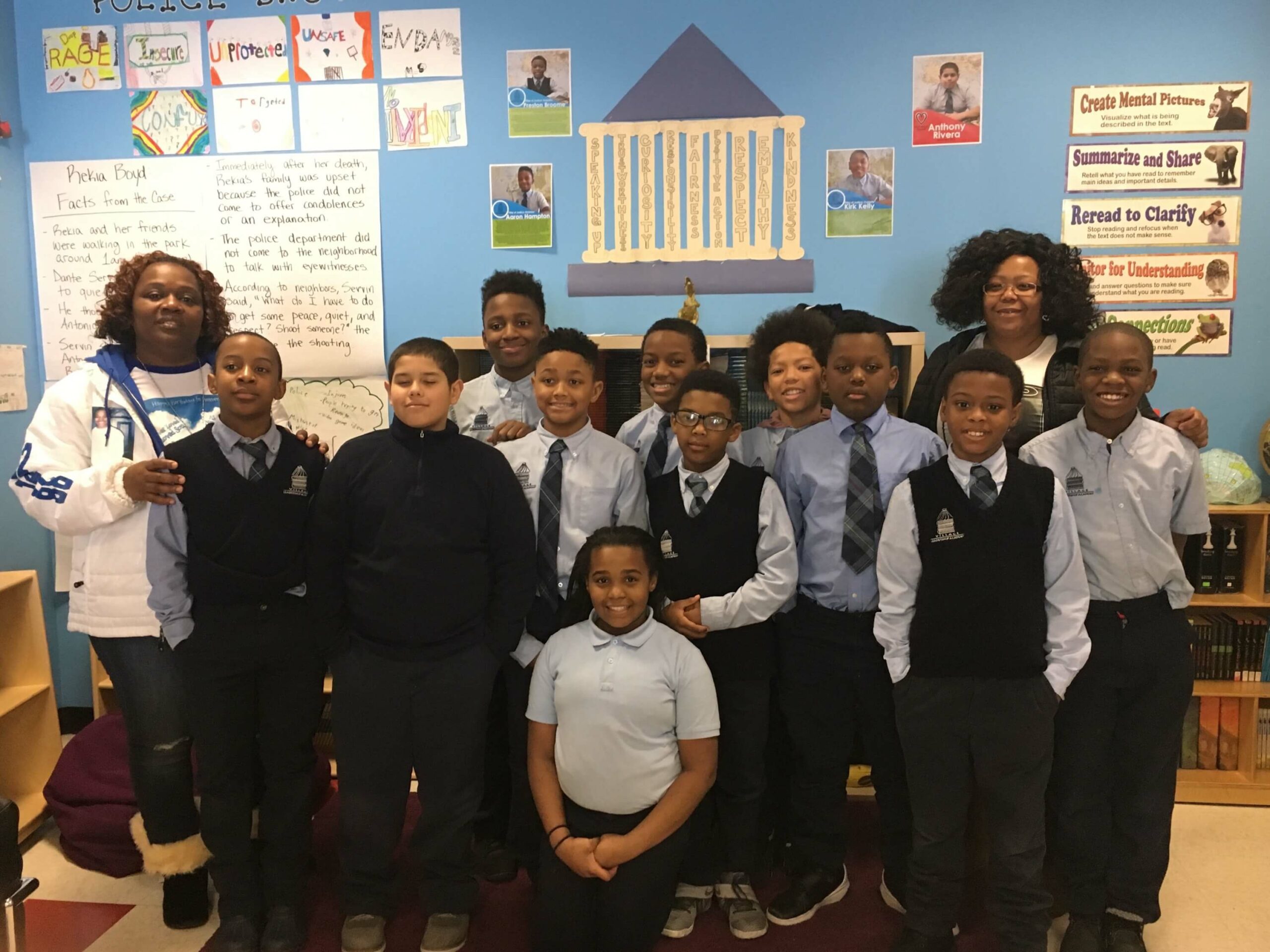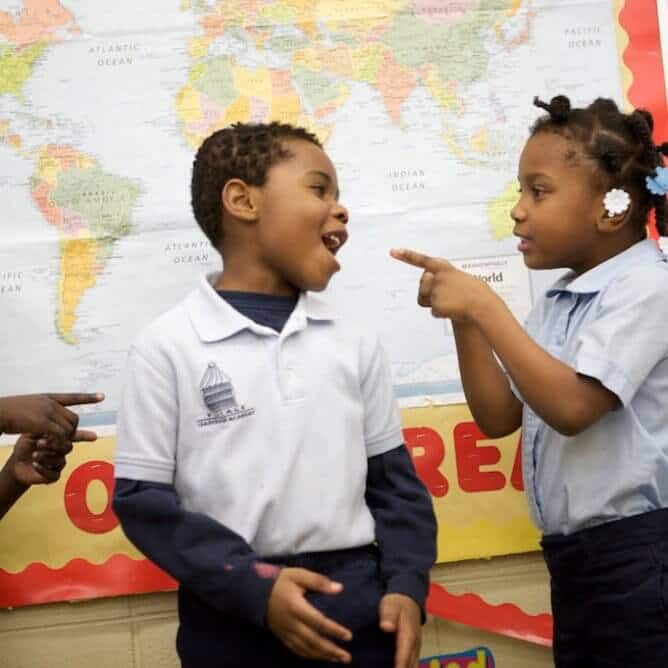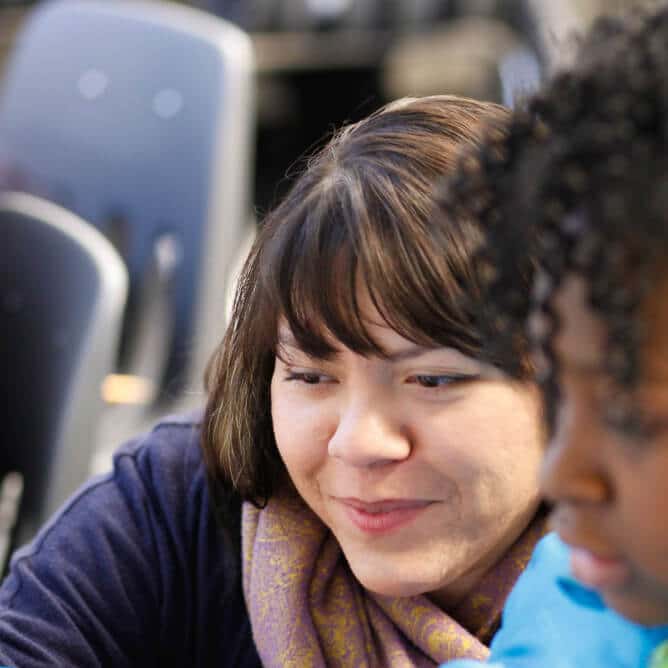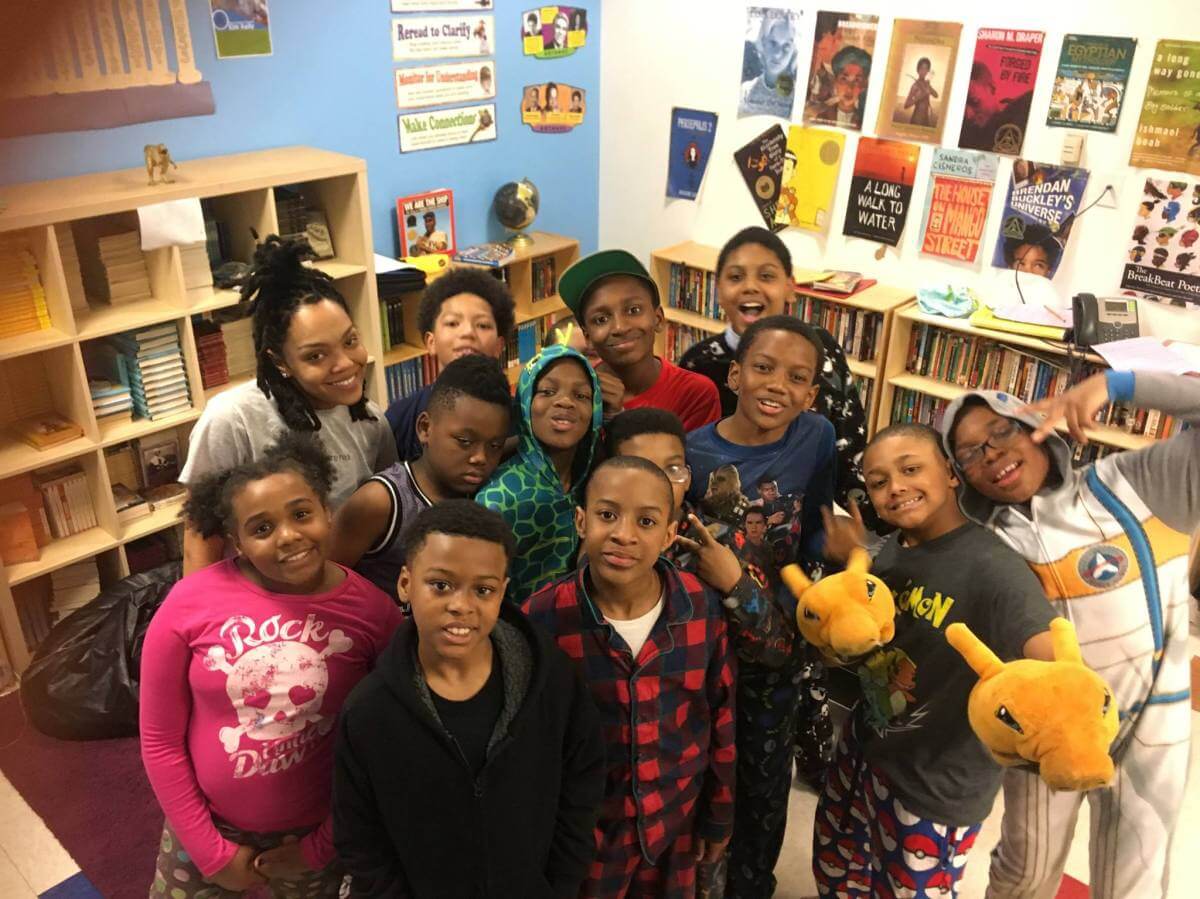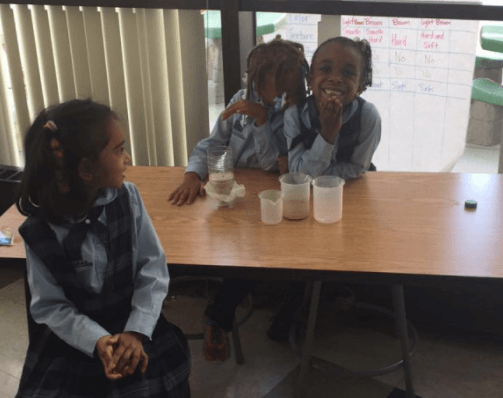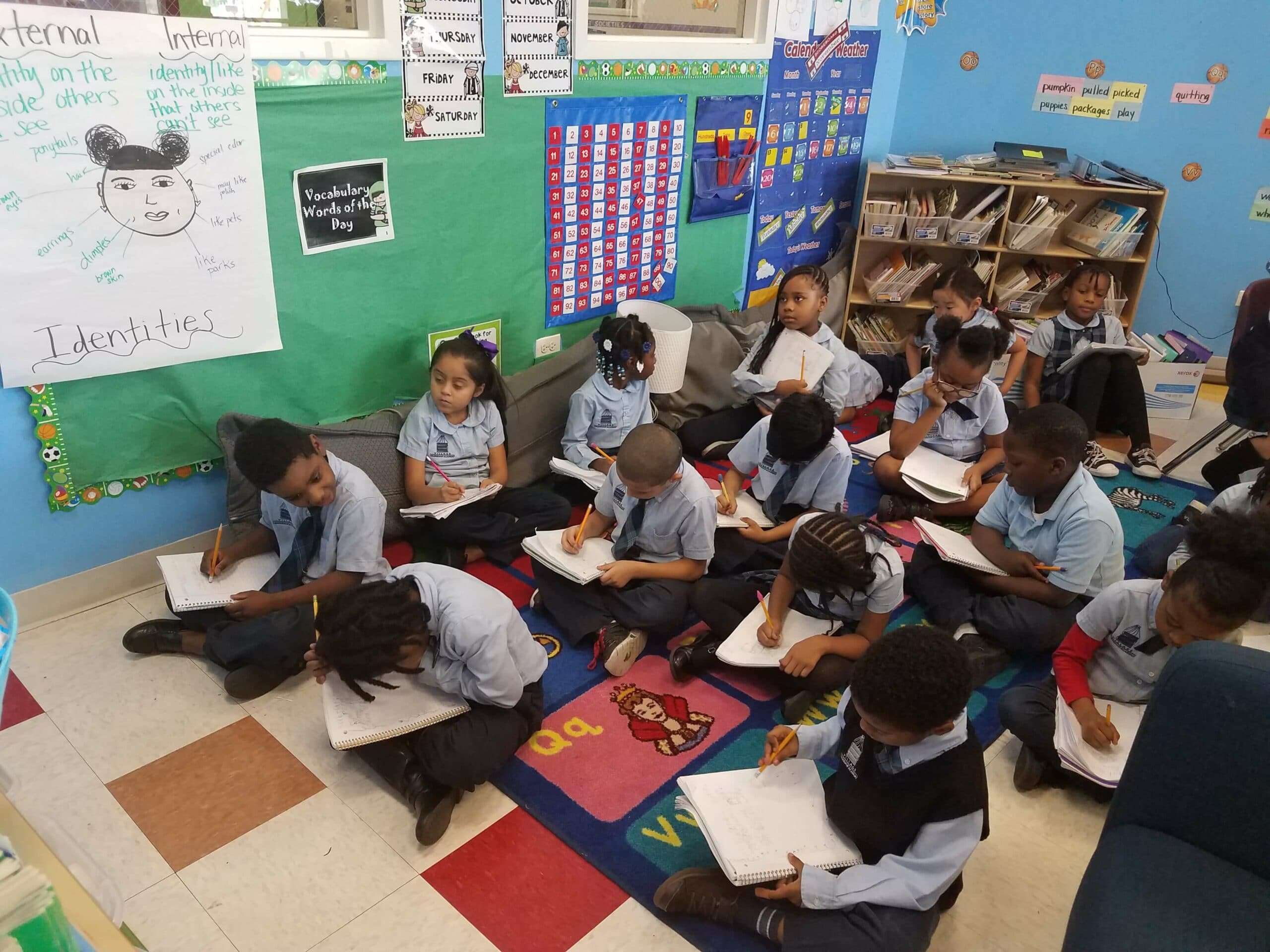Blog
A Challenge for Teachers Who Are Stuck in the Business of Education
By: VLA Instructional Coordinator, Maria Wahlstrom
The next morning when you arrive to school and hear the bell, the familiar sound becomes terrifying. Although you have known your students for the last few months, the idea of teaching them becomes slightly more intimidating because you know who they will be.
As they greet you “good morning” at the doorway, you realize that perhaps you need to become a different teacher…an even better teacher.
How would you teach differently now that you know their backgrounds will (in fact) not hinder their future? What will you do to move them forward? This would be your opportunity to make a mark in their important lives, so what mark would you leave for the little future leaders? What lessons would you want the next president to know? For these kids, stopping at standards can no longer be the final goal.
As a teacher, I found that an attitude toward students makes a huge difference in how you teach them and how they feel towards education. It’s basic Psychology: if you truly believe they will make a huge impact on the world, then you would probably do everything you can to not only teach them standards, but also to teach them all the important things you know. You want to inspire them to use their skills for something even greater than good scores: something they can carry beyond college and apply to the real chaotic world. With revolutions in Egypt and Tunisia, the world is clearly changing rapidly.
Now more than ever, this world needs them: their creativity, their critical intellect, their problem solving skills, their leadership skills, and their unique contributions.
They need to know their worth beyond classroom assessments and graduation rates and believe it. If you subsequently view and treat them as important, they will be more likely feel important and want to become even better.
But shouldn’t all teachers always naturally do this anyways? And why isn’t this happening across all classrooms (especially those with inner city kids)? As I was thinking about teacher mindset and student results, I was introduced to this article that discussed how school curriculum has become narrower, in which it mostly teaches to the test. Schools seem to increasingly use tests as an endpoint (a goal and main evaluator of teachers and students), rather than a tool.
I was saddened by the reality of many school models. I began to ask: How could teachers feel empowered and inspired when they are so tightly monitored by test scores and administrative pressures to produce good standard students despite the reality of a diverse range of student gifts and personalities?
Schools (even with good intent) have been stuck in the business of education: a system driven by limited numbers, stats, and products (our students), and it has made it hard for schools and teachers to remain grounded in the genuine (sometimes known as “idealistic”) importance of education. With a high stakes environment of aiming towards “more and better student capital,” schools have missed an essential component a long the way: a powerful, creative, and inspiring education. This is an education that prioritizes empowering kids to embrace their unique gifts, critical questions, think anew, and improve our world.
As Gloria de Souza (founder of the Environmental Studies Approach Curriculum, which is now implemented in 1,700 schools across India) stated at the beginning of her endeavor, “Something is deeply wrong in our society. And I think I can do something important. If we can help children grow up learning how to think rather than memorize and repeat, learning to problem solve, learning to be creative, learning to be actors rather than acted upon, we can create a generation that will be very different.
India will be very different. And that’s a revolution.” As of today, India is different and has led many of Americans to constantly ask what are we missing?
I believe our problems partially lies in the structure of our primary and secondary education system (refer to my previous blog entry). The truth is, no matter what politicians and school boards might say about “the importance of educating our future,” genuinely true quality education (as stated by Gloria de Souza) is unfortunately still not the main priority in many schools. We focus on manufacturing student products (known as “standard results”), and we believe that our products of the education model should produce people who are smarter and “more prepared for the future” than our competitors in India or China. We are on a race track to produce higher numbers that rely only on quantitative measure (no matter the flawed nature of our measuring system).
But let’s step back for a minute, away from “what has always been,” and ask: is this really working? And who is it working for? Is this a model worth reforming or revolutionizing? Why keep standardizing minds in a world that needs change?
It seem that this model is a major problem for our children, and in the longer run, their relationship in the world, so why keep fixing a manufactured model of education that doesn’t completely work? (TED Conference Talk). Now there are schools in our country that do inspire and empower students as leaders and innovators. Yes, they do exist, but many of these types of schools remain reserved for a small percentage of our population: the top 5-10%, (and most in that percentage are known as the elite).
There seems to be a scary trend happening right now: American schools still mimic the perpetuating class divides that resemble corporations. Similar to training obedient workers, inner city schools reward low income kids for their silence, discipline, and regurgitation of information on tests. On the other hand, schools emphasize and reward affulent kids for creativity and innovation, thus indirectly encouraging them to be the leaders of society. There is something wrong with this picture. We put innovative and critical learning “on reserve,” leaving it limitedly available for the rest of society (especially those from low-income homes).
Many of these schools are limited in location, highly expensive, and highly competitive. This education exists, but remains to be a privilege. Whether we are conscious of it or not, it seems we are still perpetuating our kids through a business model of “who creates and makes the rules” and “who follow the rules.” We can see this in the way we structure schools.
With this in mind, I want to bring you back to the questions I posed at the beginning of this blog: What if your students were truly “the next leaders of the this world?” If you are a teacher reading this, I challenge you to move away from what you diligently planned to teach today and refocus on who you are teaching? While you enter your classroom, imagine the young faces that that greet you each morning as “the most important people in the world: each one unique and highly valuable.” After thinking about who they are and who they will become, now reevaluate what you will teach. Yes, you should probably continue your lesson in the workbook.
However, think about what additional pieces of knowledge and skills do you want them to know? Most likely these are the lessons that could never be measured on a standardized test. How are they going to use their thinking in this world? How are you going to teach them the important human lessons? Are you already teaching them these lessons?
If not, today, ask yourself: How will I teach differently?
Enroll Now
Discover a partner in the future of your child. Enroll your scholar for the 2021-2022 school year today!
